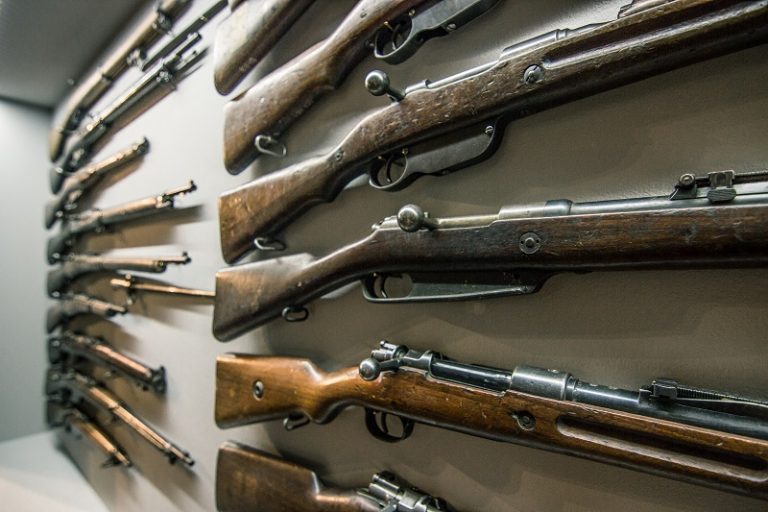The Czech Senate has passed, with the support of 66 of the 75 senators present, a new bill on weapons and ammunition that obliges arms dealers to report suspicious transactions, allows for the confiscation of weapons over security risks, and reduces from ten to five years the interval for medical check-ups of gun owners.
Unlike the government’s original draft, the bill preserves the right to acquire, own and carry weapons under legal conditions. It will now be submitted to President Petr Pavel for signing.
Interior Minister Vit Rakusan (STAN) told senators that the new law will not take effect until 2026 because of the digitisation of the central arms register, and its integration with other police and medical records. However, in response to the December shooting at the Charles University Faculty of Arts, where a student killed 14 people, wounded 25 others and subsequently killed himself, some of the bill’s provisions will be included in an amendment to the existing law later this year, he said.
The new law will make the voluntary reporting of suspicious behaviour by gun owners or buyers mandatory. In addition to dealers, it should also apply to the owners of shooting ranges, Rakusan said.
The law empowers public authorities to seize weapons from their owners if a security risk is identified, such as threats on social media. This power will not be used arbitrarily, but will have to be justified and be subject to judicial review. Mayors or school principals could also initiate the seizure of weapons, Rakusan said.
In addition to shortening the time limit for periodic medical review of gun owners, the law includes the possibility for police to order such a review at any time. In the future, doctors will be given access to the central gun registry to verify whether their patient holds a firearms licence. A doctor who discovers that a patient has a disease, defect or condition that limits their medical capacity will be obliged to report this to the police without undue delay under the new law.
The upcoming partial amendment to the existing law, for its part, could introduce a mandatory specialist psychological examination for new applicants for a firearms licence, or the government may alternatively decide to include this in the new law.
The current law does not require a psychological assessment, only proof of the applicant’s medical fitness. The general practitioner who certifies this competence can only request a psychological opinion as well. After several hours of debate, Senator Hana Kordova Marvanova (ODS/TOP 09) failed to push through the introduction of mandatory psychological tests for new holders of firearms licences.
The new law envisages that paper firearms licences will be replaced by electronic entries in the central arms register. The law foresees various ways to prove the possession of a licence. In addition to the electronic route, it will also leave in place options such as issuing firearms certificates at public administration contact points. It also abolishes local jurisdiction, so that gun holders will no longer have to deal with the matters exclusively in their region of residence.
Other innovations include the introduction of an additional category of weapons, and the simplification of the firearms licence structure. Two types of firearm licence will be established instead of the current five, and there will be three groups of firearms authorisation instead of the current ten.
In future, the new law will allow only holders of a firearms licence to acquire a flobert-type weapon. Maintaining a specialised regime for so-called flobert guns would not be in line with the European Arms Directive, said the Interior Ministry.







